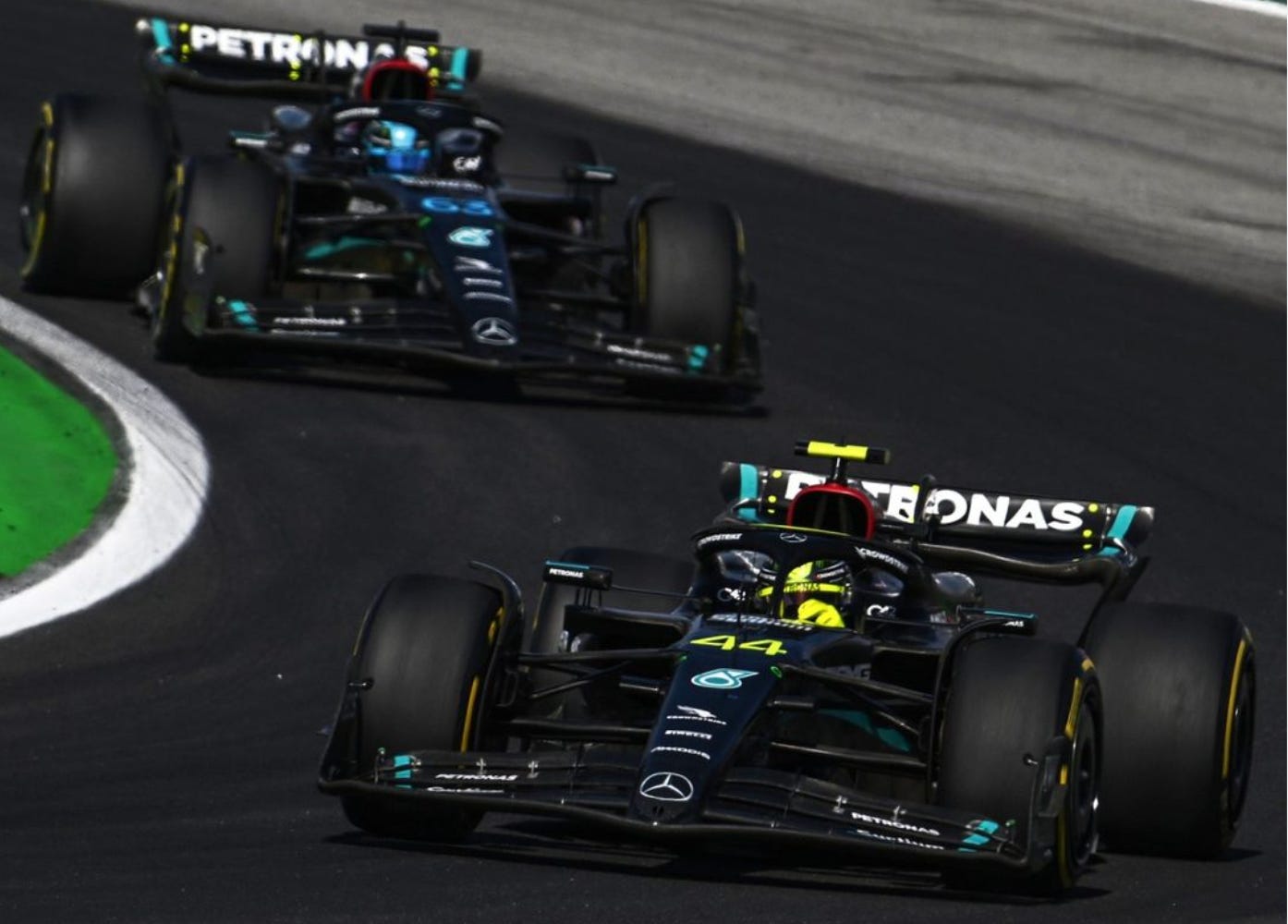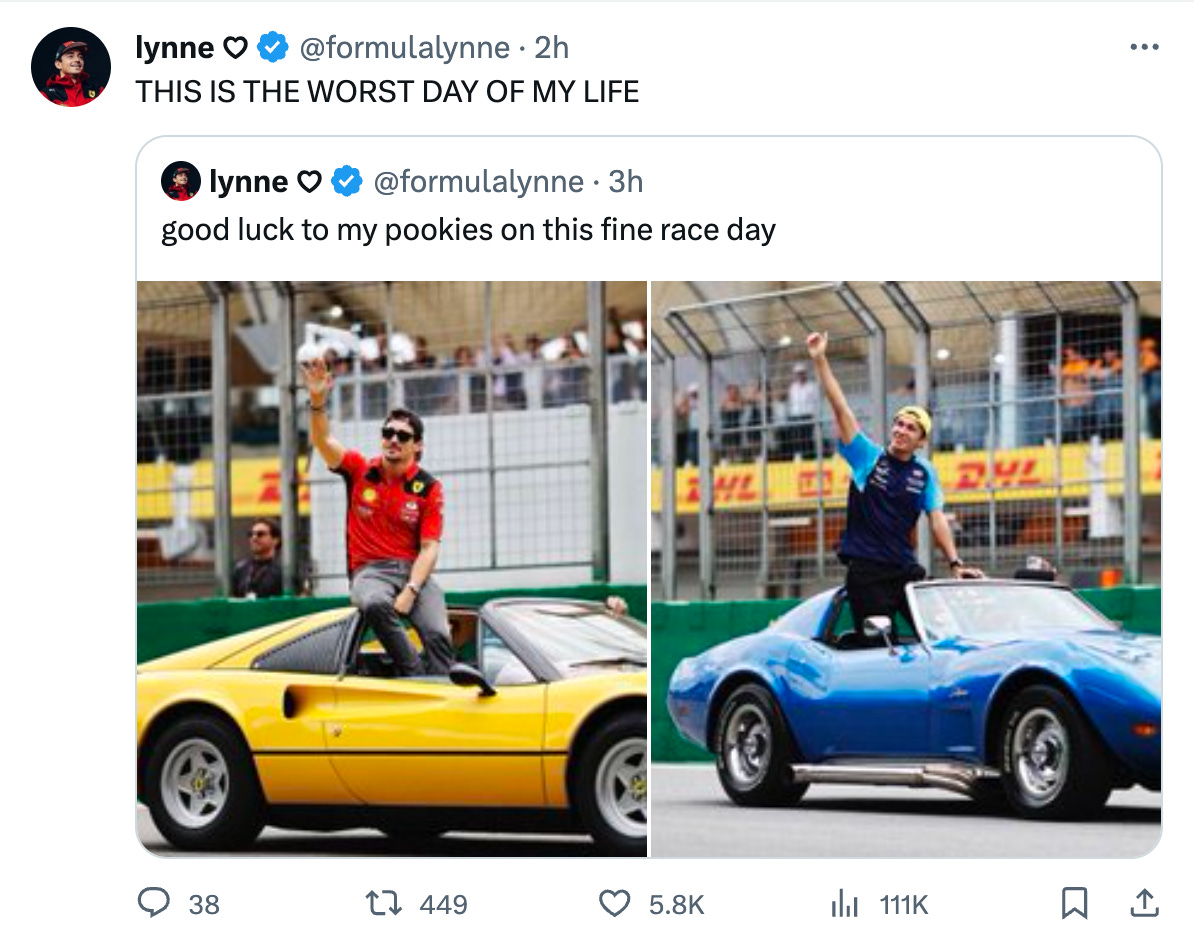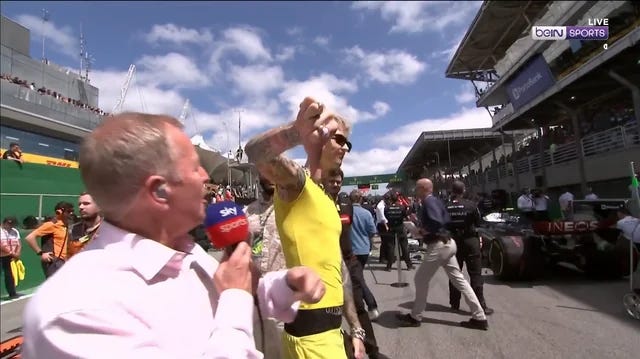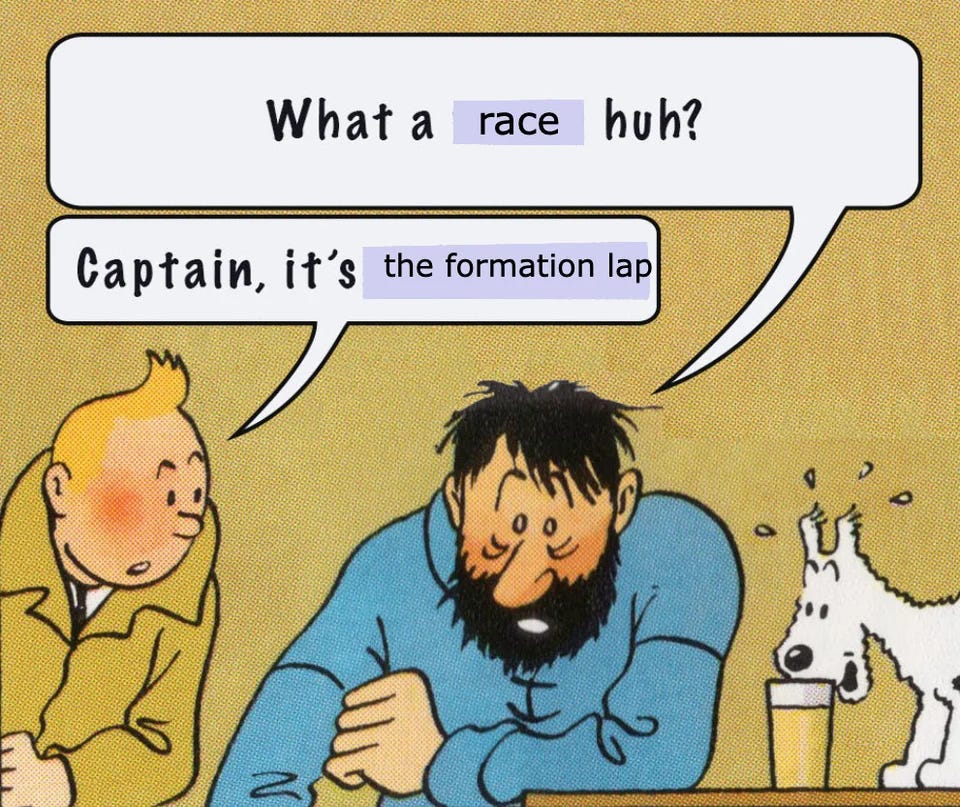‘Only Fools Are Optimists’
Mercedes’ São Paulo Grand Prix is a culmination of two seasons of struggles.
After last year’s São Paulo Grand Prix, Mercedes firmly believed they had turned a corner after their worst year since 2013.
As George Russell reached the checkered flag to claim his maiden victory in F1, his radio message was imbued with his rush of optimism: “This is just the beginning!”
Reader, the beginning was apparently referencing yet another scrap of a season.
Three hundred and sixty eight days after Russell’s win — and Mercedes’ first 1-2 finish since the 2020 Emilia Romagna Grand Prix — Lewis Hamilton finished a lowly P8 in the 2023 São Paulo Grand Prix, securing the team’s only points after Russell’s Lap 59 retirement.
For all the flak Russell has received for his past comment of being forecasted for a podium come race day, this year’s grand prix in Brazil really did seem like Mercedes’ best shot at victory.
“We’ve showed encouraging pace in recent races so [we] head to Interlagos with cautious optimism, although we know W14 can prove unpredictable,” Toto Wolff said ahead of the weekend.
His hope was qualified: “I don’t know. If I’m too optimistic here… you know only fools are optimists.”
Wolff had reason for optimism, though. Mexico was challenging compared to Austin for Mercedes, but Hamilton still finished P2, with Russell not far behind in P6.
But setting up a car for the Autódromo José Carlos Pace circuit is challenging. While sectors one and three are defined by long straights that require low drag, sector 2 is full of twisty slow corners that reward high downforce. With changing weather conditions and only one practice session to set-up the car, Mercedes clearly struggled. The car carried too much drag and overheated; the oil in Russell’s power unit was the only cooking Mercedes ended up doing this weekend.
This year was supposed to be an improvement of last year for Mercedes. They ditched their zero sidepod philosophy in July, but the results still never really materialized for the team.
Their season’s story in numbers also isn’t so rosy: Mercedes have 382 points after the São Paulo Grand Prix this year compared to 505 last year (though last year’s race was round 21; this year’s race was round 19). Compared to last year’s 17 podiums, Mercedes has just seven this year. Their only improvement is sitting second in the constructor’s championship this year, 20 points ahead of Ferrari, who had bad luck hampering their own race in Brazil, to say the least.
While Red Bull’s dominance has inflated their own numbers at the expense of other teams, Mercedes is still to blame for much of their own disappointing results. During many race weekends, they still behave like a team that relies on sheer speed for results.
Pit stops over three seconds are the norm for Mercedes, as are conservative strategy calls that leave their drivers as sitting ducks. In Austin, Mercedes waffled on Hamilton’s strategy. Deciding between a one-stopper and two-stopper, Mercedes decided on the latter, but waiting three laps to make the call meant they couldn’t effectively respond to their competitor’s undercut.
The strategic misery continued in Brazil. Though Russell, hot on Hamilton’s tail, complained of Hamilton driving slowly, Russell repeatedly failed to keep within DRS range of his teammate. When Russell’s race engineer told him to switch to ‘Plan B,’ Russell continued to run a two-stop, as opposed to three-stop race, sticking with the same conservative strategy as his faster competitors.

But most off-putting is Mercedes’ fundamental lack of understanding of their car. Even after successful upgrades and strings of podiums, there are times such as Brazil when the W14 is unhappy and unmanageable. Week in and week out, the Mercedes PR philosophy is to underpromise and overdeliver, and while it can be a tiresome strategy, it’s clearly necessary — sometimes they really can’t guarantee consistent results with the car.
Meanwhile, Red Bull, who has beaten their competitors with such conviction this year, are operating to perfection in all departments. McLaren, who earned only 17 points in the first eight races of the year, took a page from Red Bull’s book, tightening up all parts of the team and stealing Red Bull’s world record for fastest pit stop, which they managed to narrow down to 1.8 seconds.
Mercedes’ struggles are punctuated by foundational changes. On Tuesday, Mercedes Chief Technical Officer Mike Elliott resigned after 11 years with the team. Elliott oversaw the sidepod concept that cost the team dearly last season, but he doesn’t attribute his resignation to the team’s struggles. His resignation comes seven months after Elliot switched roles with now-Technical Director James Allison in April.
Internal shuffles and big name resignations generally don’t reflect well on teams — just as Alpine. But at Mercedes, it could be time for fresh blood. The team has floundered since the implementation of the cost cap, and the recommitment to the zero sidepod concept for 2023 was indication that even juggernauts such as Mercedes can fall victim to the sunk cost fallacy.
Teams such as Aston Martin and McLaren have demonstrated the scrappy ability to climb the ranks after difficult periods. Aston Martin was even willing to ditch their upgrades for the São Paulo Grand Prix after realizing they went in the wrong direction. Both these teams share Mercedes’ power units, and their ability to succeed as customer teams have only exaggerated how much Mercedes appears to be stumbling.
On-track debris:
Max Verstappen and Lando Norris have finished 1-2 four times this season. Verstappen and Sergio Perez have finished 1-2 six times.
Fernando Alonso beat Perez to the line by 0.053 seconds. The record for closest finish in F1 belongs to Peter Gethin, who won the 1971 Italian Grand Prix by 0.01 seconds ahead of Ronnie Peterson.
Few grid walk interviews have compared to that of Machine Gun Kelly’s. After Martin Brundle introduced himself to the musician and asked several questions, MGK said he didn’t understand Brundle, and then proceeded to ask Brundle to do his best air guitar. He then left mid-grand prix and, like so many of the best of us, tweeted about his social anxiety.
Truly curious as to if Chuck Leclerc is truly as unlucky as he claims to be. Let this provide some illumination.





